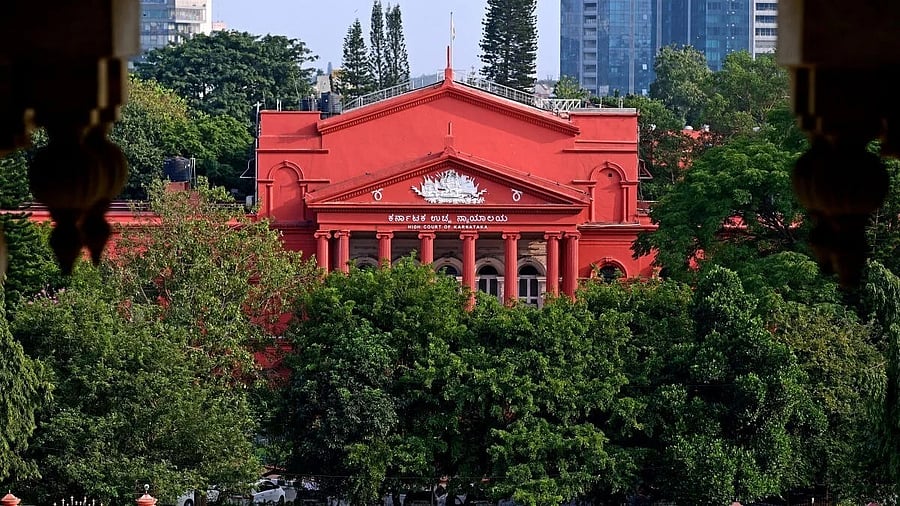
The Karnataka High Court
Credit: DH Photo
Bengaluru: The Karnataka High Court directed the revenue authorities to create a new workflow within Kaveri 2.0 titled 'Mutation Based on Civil Court Decree' to ensure that the revenue records are amended in conformity with judicial declarations, as mandated under the Karnataka Land Revenue (KLR) Act.
Justice Sachin Shankar Magadum issued a series of guidelines to this effect and said that the current configuration of Kaveri 2.0 inadvertently creates a legal vacuum, compelling citizens to seek multiple endorsements, verifications, and certifications for matters conclusively decided by courts of law.
“This scenario frustrates the object of Section 128, which seeks to ensure that all acquisitions of rights whether by act of parties or operation of law are duly recorded in the revenue registers, and also contravenes Section 135, which requires revenue records to be amended in accordance with judicial declarations,” Justice Magadum said, adding that the present Kaveri 2.0 framework, being primarily transaction-oriented (sale, gift, mortgage, inheritance), does not adequately accommodate mutations arising from civil court decrees.
The court directed the Principal Secretary, Revenue Department, to constitute a joint legal-technical committee to design and implement the system modifications within six months and to monitor periodic audits at the taluk level.
Directions
The court said that the Departments of Stamps and Registration and Revenue, in collaboration with Centre for Smart Governance (CSG), shall introduce the new workflow within Kaveri 2.0 to upload and authenticate civil court decrees (preliminary, final, or compromise or declaratory Decrees), for auto-generation of a digital mutation request (J-Slip) to Bhoomi, mapping decree particulars to survey numbers, an interface to record proportionate shares in the parent RTC and a provision to attach 11-E sketches when subdivision is sought.
The court said the software shall clearly differentiate between mutation of decree without sub-division, and sub-division based on final or compromise decree, thereby eliminating procedural confusion.
“When a civil court declares, confirms or recognises ownership rights under a declaratory, preliminary, final or compromise decree, the same shall be reflected in the parent RTC without delay. The names of all sharers and their respective extents, as determined by the decree, shall be entered in the owner’s or remarks column of the parent RTC,” Justice Magadum said. The court further said that a 11-E sketch is required only when the decree-holder seeks an independent RTC or intends to alienate an undivided share or specific portion with boundaries as indicated in the final decree, and not for mere reflection of ownership in the parent RTC.
In the case at hand, the petitioner had obtained a final compromise decree, which has attained finality. The court noted that insistence on an 11-E sketch as a precondition for basic name mutation in the parent record unnecessarily delays fiscal reflection of judicially determined rights and is legally unsustainable. The court directed the authorities to effect mutation of the petitioner’s name in the revenue records in accordance with the compromise decree and to issue the 11-E sketch in case sub-division is sought.